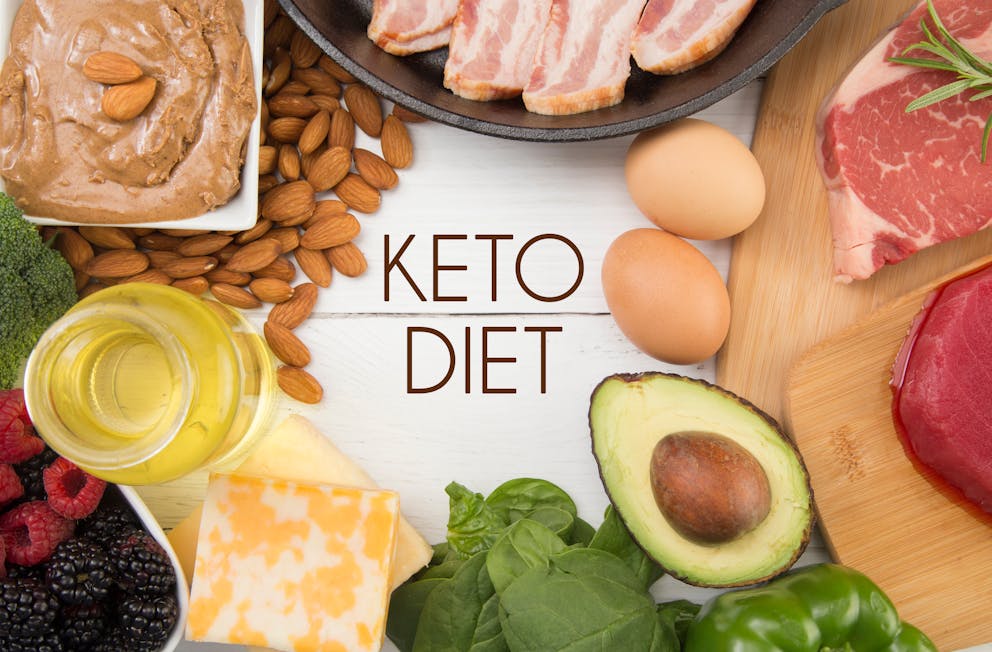Dry Mouth or Cotton Mouth on Keto

Magnesium Cheat Sheet
Understand magnesium's role in maintaining health and preventing disease
Recognize early signs and common causes of magnesium deficiency
Discover practical tips for incorporating magnesium into your diet
Explore the best forms of magnesium supplements and which ones to avoid
Find out why you should always take magnesium and vitamin D3 together

Magnesium Cheat Sheet
Understand magnesium's role in maintaining health and preventing disease
Recognize early signs and common causes of magnesium deficiency
Discover practical tips for incorporating magnesium into your diet
Explore the best forms of magnesium supplements and which ones to avoid
Find out why you should always take magnesium and vitamin D3 together

Magnesium Cheat Sheet
Understand magnesium's role in maintaining health and preventing disease
Recognize early signs and common causes of magnesium deficiency
Discover practical tips for incorporating magnesium into your diet
Explore the best forms of magnesium supplements and which ones to avoid
Find out why you should always take magnesium and vitamin D3 together

Magnesium Cheat Sheet
Understand magnesium's role in maintaining health and preventing disease
Recognize early signs and common causes of magnesium deficiency
Discover practical tips for incorporating magnesium into your diet
Explore the best forms of magnesium supplements and which ones to avoid
Find out why you should always take magnesium and vitamin D3 together

Magnesium Cheat Sheet
Understand magnesium's role in maintaining health and preventing disease
Recognize early signs and common causes of magnesium deficiency
Discover practical tips for incorporating magnesium into your diet
Explore the best forms of magnesium supplements and which ones to avoid
Find out why you should always take magnesium and vitamin D3 together

Magnesium Cheat Sheet
Understand magnesium's role in maintaining health and preventing disease
Recognize early signs and common causes of magnesium deficiency
Discover practical tips for incorporating magnesium into your diet
Explore the best forms of magnesium supplements and which ones to avoid
Find out why you should always take magnesium and vitamin D3 together

Magnesium Cheat Sheet
Understand magnesium's role in maintaining health and preventing disease
Recognize early signs and common causes of magnesium deficiency
Discover practical tips for incorporating magnesium into your diet
Explore the best forms of magnesium supplements and which ones to avoid
Find out why you should always take magnesium and vitamin D3 together

Magnesium Cheat Sheet
Understand magnesium's role in maintaining health and preventing disease
Recognize early signs and common causes of magnesium deficiency
Discover practical tips for incorporating magnesium into your diet
Explore the best forms of magnesium supplements and which ones to avoid
Find out why you should always take magnesium and vitamin D3 together

Magnesium Cheat Sheet
Understand magnesium's role in maintaining health and preventing disease
Recognize early signs and common causes of magnesium deficiency
Discover practical tips for incorporating magnesium into your diet
Explore the best forms of magnesium supplements and which ones to avoid
Find out why you should always take magnesium and vitamin D3 together
Many people who adopt the keto diet are looking to lose weight or simply improve their overall health. However, some people begin the diet and discover that they are suffering from dry mouth.
Learn about the keto diet, how it encourages health and weight loss, and what adjustments you can make to ensure you avoid dry mouth.
Understanding Dry Mouth on Keto
A low-carb, high-fat eating pattern known as the ketogenic diet (or "keto" for short) has become popular due to its potential health benefits, such as weight loss and improved blood sugar control. However, like any significant dietary shift, it can have some side effects.
Role of Saliva in Maintaining Oral Health
A common complaint among those new to the keto lifestyle is dry mouth. It's not just uncomfortable; saliva plays an essential role in our oral health by washing away food particles and preventing tooth decay.
Humans produce between 0.5 and 1.5 liters of saliva daily, equivalent to two to six cups.
Dry mouth on keto isn’t usually a cause for concern – it’s simply your body adjusting itself during the transition from burning glucose (sugar) for energy towards using ketones produced from fats instead.
If dry mouth is causing you concern, however, consult with a healthcare provider before taking any action.
The Role of Amylase in Starch Digestion
Think of amylase as a pair of scissors. It snips the long chains of starch molecules into smaller, digestible pieces. Your body produces plenty of this enzyme on a standard diet because you're regularly consuming starchy foods.
Impact of Reduced Starch Consumption on Amylase Production
If you decide to follow a ketogenic diet, your intake of starchy foods plummets dramatically.
Amylase production then slows down because there isn't much work for it anymore.
So when we cut back on carbs (the primary source being starchy foods) and move towards fats for energy – that’s keto - we're also dialing down our need for amylase.
This results in lowered saliva production, which could lead to dry mouth symptoms since saliva contains enzymes like amylase that help break down food.

Electrolyte Imbalances on Keto Diet
A keto diet, while successful in weight reduction, can sometimes cause electrolyte disparities. This often involves crucial minerals like potassium and magnesium.
Importance of Potassium in a Keto Diet
Potassium is vital in maintaining hydration and preventing dry mouth. When following a keto diet, your body needs around 4,700 milligrams daily.
To meet this requirement without resorting to supplements might seem daunting, but fear not. Consuming between seven to ten cups of salad daily will help you hit the mark quickly.
Recent studies show that leafy greens are an excellent source of natural potassium.
Using Electrolyte Powders
Eating all those veggies might sound daunting. If so, electrolyte powders can come in handy as they supplement dietary intake and prevent dry mouth by replenishing lost nutrients.
Incorporating these practical strategies into your daily routine will ensure you avoid uncomfortable side effects like dry mouth and reap more benefits from following a ketogenic lifestyle.
Magnesium Deficiency and Dry Mouth
A magnesium deficiency can make symptoms of dry mouth worse on a ketogenic diet.
Magnesium is pivotal in saliva production. Magnesium-rich foods like spinach or pumpkin seeds can relieve these dry mouth symptoms by increasing saliva production.
The Role of Sodium Chloride in Hydration
Sodium chloride, commonly known as sea salt, is essential to our bodies. Not only does it help retain water to maintain the proper fluid balance, but it also aids in nerve and muscle function. This humble compound can be your secret weapon against dry mouth on keto.
Recent studies have shown that increasing sodium intake through natural sources like sea salt can aid hydration levels significantly. But remember - moderation is vital.
Incorporating Sea Salt into Your Keto Diet
Add more sea salt to your dishes or sip homemade bone broth throughout the day. You'll notice how these little changes keep you hydrated and effectively fend off dry mouth symptoms.
Being mindful about including enough sodium chloride while following a ketogenic diet helps prevent electrolyte imbalances that could lead to unpleasant side effects such as dry mouth.

Oral Probiotics for Dry Mouth
Oral probiotics may benefit individuals dealing with dry mouth, a condition known as xerostomia. A dry mouth can lead to discomfort, difficulties swallowing and speaking, and an increased risk of dental problems.
The benefits of oral probiotics in this context lie in their ability to help stimulate saliva production and maintain a healthier oral environment.
By fostering a more balanced microbiome in the mouth, oral probiotics can alleviate some of the symptoms associated with dry mouth and improve oral comfort and overall well-being.
Incorporating oral probiotics into your daily routine may offer a natural and holistic approach to managing dry mouth and its associated challenges. Do not begin taking any supplements before consulting a medical professional however.
Conclusion
While the keto diet offers numerous health benefits, it can sometimes lead to dry mouth as a side effect. Understanding the reasons behind this, such as reduced amylase production and electrolyte imbalances, is crucial.
Strategies like consuming potassium-rich foods, using electrolyte powders, and increasing sodium intake can help alleviate dry mouth symptoms.
Additionally, oral probiotics may offer a natural solution by promoting saliva production and maintaining oral health.
By making these adjustments, you can enjoy the benefits of the keto diet while minimizing discomfort associated with dry mouth. However, consulting with a healthcare professional before making any significant changes is always advisable.
Previous blog
What is Malic AcidTags

Popular
08/21/2024
55K views
02/23/2025
46.3K views
11/18/2024
277.5K views
03/18/2024
11/21/2022




